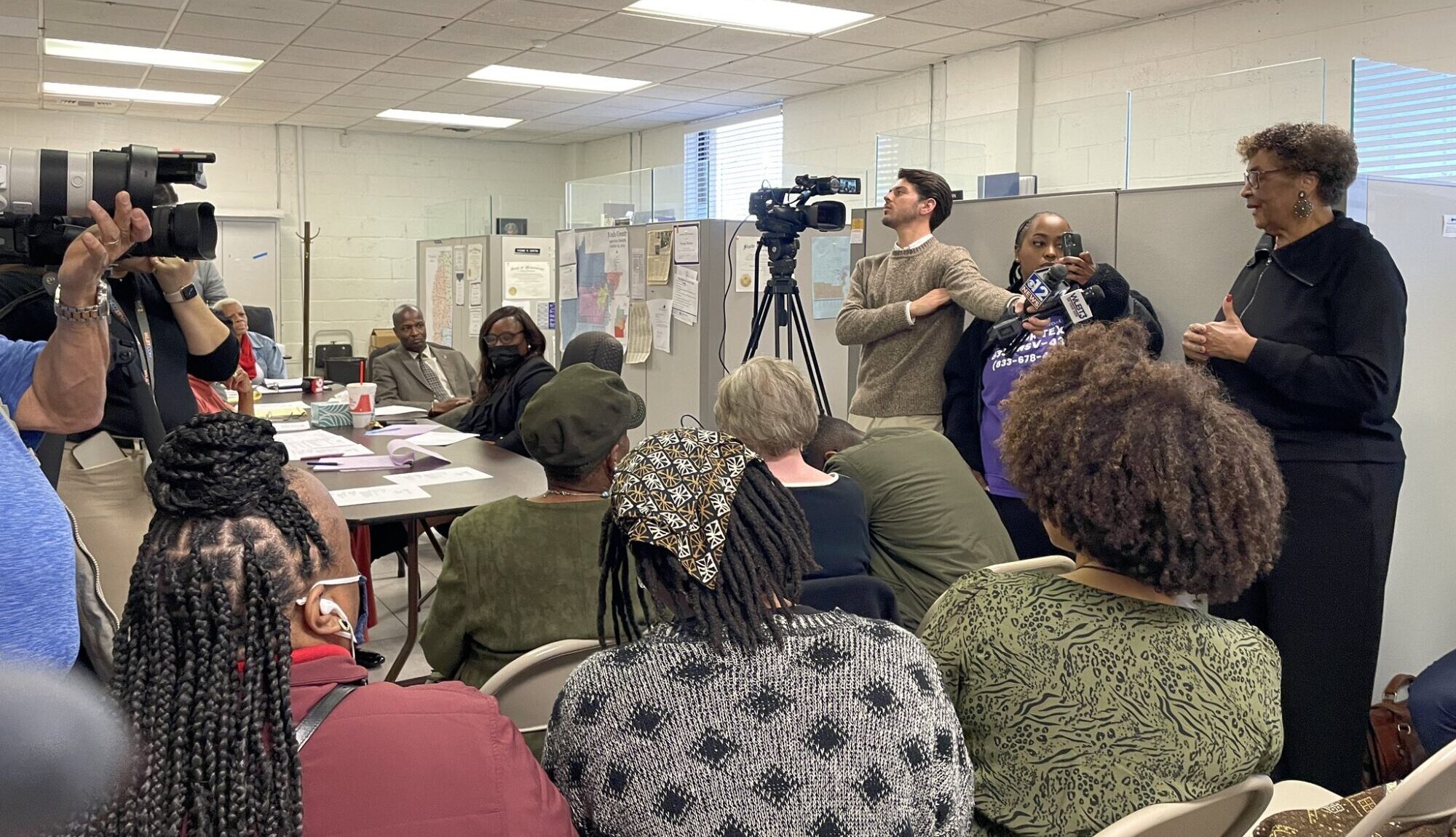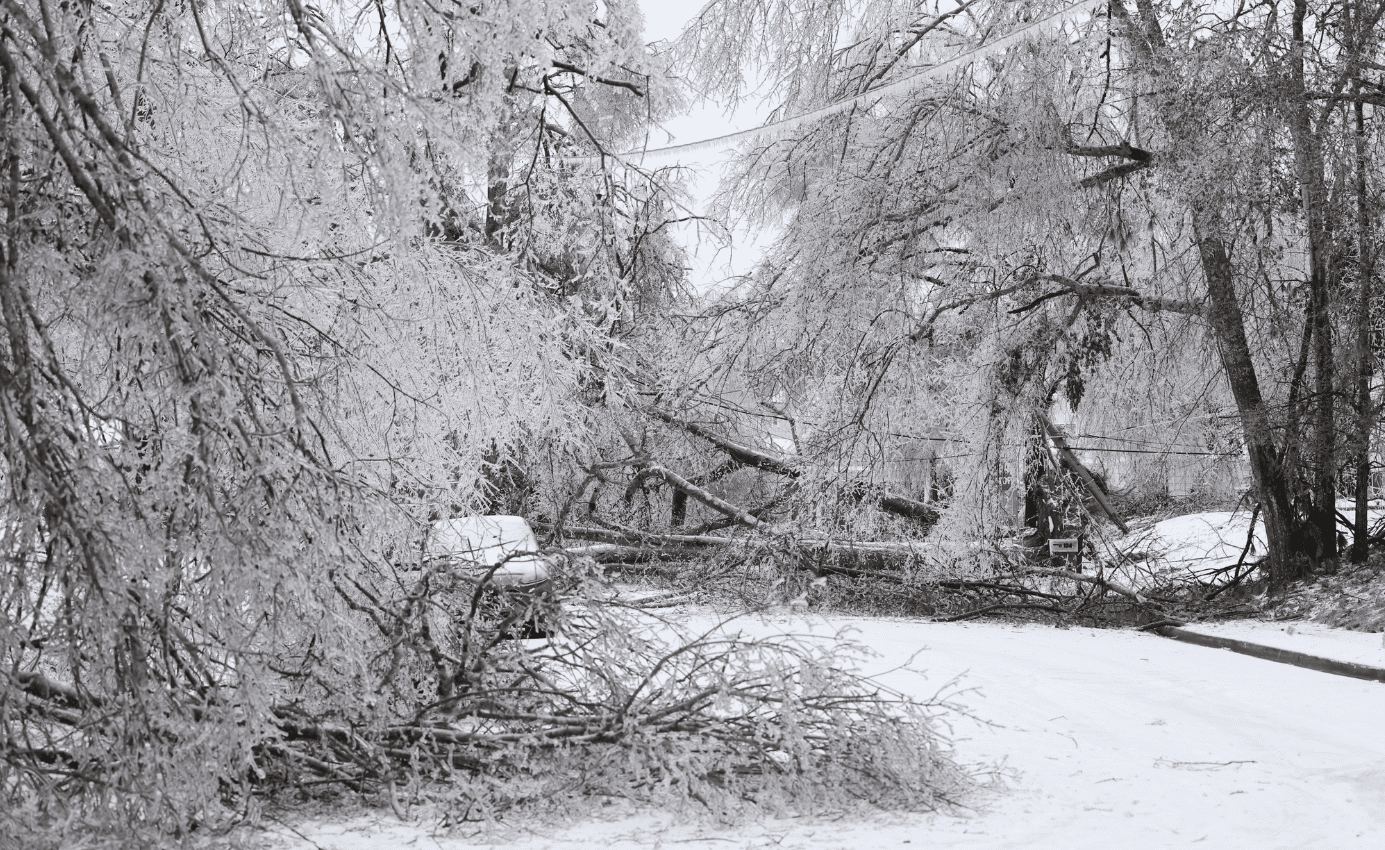
Residents want answers as to what happened on Election Day in Hinds County and a plan to ensure it doesn’t happen again.
On Election Day, ballot shortages were reported in Hinds County which prompted lawsuit filings that ultimately landed the issue in front of the Mississippi Supreme Court.
The lawsuit aimed to extend voting time from 7:00 p.m. until 8:00 p.m. While originally granted by a Chancery Judge in Hinds County, a Supreme Court special appointed judge overruled the order but maintained that state law allows anyone in line by 7:00 p.m. be able to cast their vote regardless of wait time.
Tuesday, the Hinds County Election Commission met for their monthly meeting on December 12 in which a packed room of residents and advocacy groups waited to express their concerns to the elected officials.
The public comment period opened with representatives from advocacy groups such as One Voice, Mississippi Votes, the Poor People’s Campaign, and the Southern Poverty Law Center. Many of the groups and individuals, including the Southern Poverty Law Center, mentioned that issues with ballots were reported during the Democratic Primary in the district earlier this year. They believe those reports went unattended to by election commissioners.
A representative with Mississippi Votes, one of the groups that assisted in the Election Day lawsuit which was filed in response to the ballot shortages, said they received over 100 calls across the state of long lines, misprinted ballots, and broken machines causing issues with the voting process.
“Now, we demand transparency, accountability from the election commissioners and the Circuit Clerk’s office. Mississippians deserve a comprehensive understanding of how their electoral system operates and evolves,” said Mikel Bolden from Mississippi Votes. “It is crucial for rectifying mistakes and restoring crucial and restoring public trust in their fundamental core in our democracy.”
The Poor People’s Campaign, who partners to organize poll monitors for election days, said they had issues doing their duties because of a lack of understanding from poll workers.
“Apparently, Hinds County Election Commissioners do not know the roll of poll monitors and that they are non-partisan and can be on the property of any formal precinct,” said Danielle Holmes.
She noted a specific instance where monitors were disrespected while doing their duties. Holmes said commissioners must make time to address issues in the community, particularly critical ones like voting.
Monica Taylor, a Hinds County resident who was directly impacted by the shortages, said when she arrived at her precinct, she was told they were out of ballots. When she inquired as to when there would be more, she indicated she was met with “no urgency” by the poll workers.
“I didn’t see any urgency about the situation. My grandfather is in the Civil Rights museum. This is what he fought for, so I’m not a person that you can tell ‘we don’t have any ballots’ and think I’m going to walk away,” said Taylor.
She proceeded to call news outlets to alert them of the issue at her precinct. Taylor said she felt she had more urgency to try and resolve the issue than those working the polls. However, Taylor said she is not focused on the past but wants to understand how the county can move forward to ensure this issue does not happen again.
“I need answers, and I need to know that this will not happen again,” said Taylor.
Other speakers included Sharon Moman, a candidate for House District 56 who lost in her bid for the Legislature, who said these issues greatly impact a candidate’s ability to run and draw attention to their district.
“Wrong ballots, no votes. No ballots, no votes. Long lines, no votes,” said Moman to the committee. “For an individual who is running for office and trying to make a difference I don’t want anyone to think that that 33 percent attached to my name is the way it should be. Because it should not have been that way and that data will sit there and people will not donate to campaigns if they don’t think they are winnable.”
Others posed questions to the commission as to who is responsible for the ordering of ballots and whether or not there are checks and balances to the process to ensure it is done correctly. Some pointed out Mississippi’s laws regarding ballot box security, saying they are inadequate.
The commission indicated they planned to hire an attorney to look into the issues from the election.










